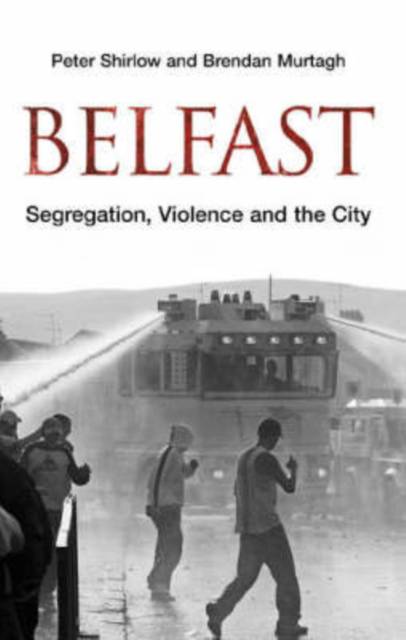
- Afhalen na 1 uur in een winkel met voorraad
- Gratis thuislevering in België vanaf € 30
- Ruim aanbod met 7 miljoen producten
- Afhalen na 1 uur in een winkel met voorraad
- Gratis thuislevering in België vanaf € 30
- Ruim aanbod met 7 miljoen producten
Omschrijving
Paris, Jerusalem and Belfast are cities that are shaped by political violence, death and the injustices caused by segregated living. But divided cities are becoming places within which policy makers and politicians project an image of normality despite the facts of social injustice, victimhood and harm.
It is a commonly held view that the city of Belfast is emerging out of conflict and into a new era of tolerance and transformation. This book challenges this viewpoint. The authors pinpoint how international peace accords, such as the Belfast Agreement, are gradually eroded as conflict shifts into a stale and repetitive pattern of ethnically-divided competition over resources.
This book is a vivid portrait of how segregation, lived experience and fear are linked in a manner that undermines democratic accountability. It argues that the control of place remains the most important weapon in the politicisation of communities and the reproduction of political violence. Segregation provides the laboratory within which sectarianism continues to grow.
Specificaties
Betrokkenen
- Auteur(s):
- Uitgeverij:
Inhoud
- Aantal bladzijden:
- 216
- Taal:
- Engels
- Reeks:
Eigenschappen
- Productcode (EAN):
- 9780745324807
- Verschijningsdatum:
- 1/05/2006
- Uitvoering:
- Paperback
- Formaat:
- Trade paperback (VS)
- Afmetingen:
- 137 mm x 216 mm
- Gewicht:
- 267 g

Alleen bij Standaard Boekhandel
Beoordelingen
We publiceren alleen reviews die voldoen aan de voorwaarden voor reviews. Bekijk onze voorwaarden voor reviews.











